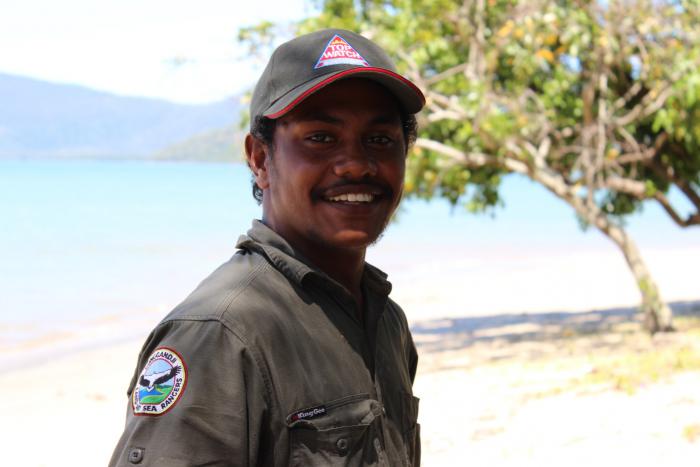Gunggandji Rangers keeping traditional lands healthy
Gunggandji Rangers Jimmito Harris.jpg

In many Indigenous communities around Australia, local kids want to grow up to be rangers, and it’s not hard to see why. Looking after country and keeping a strong connection to it, while gaining vital qualifications, is a dream job for many.
Jimmito Harris from Yarrabah in northern Queensland is a full time ranger trainee with the Gunggandji Ranger Program, and knows he has got a great job.
“It’s good being a ranger,” Jimmito said.
“You get to go see places, get out of Yarrabah and meet many different people. It’s good working with other people; my fellow ranger’s son says he wants to be like me. It’s a good feeling when younger people want to be like you.”
“You know you’re a role model and it’s time to step up.”
Anthony Satrick, the CEO of the Gunggandji PBC Aboriginal Corporation which runs the Gunggandji Ranger Program, said the rangers play an important role in keeping the local environment healthy and culture strong.
“We’re hoping to instill our cultural values of land management and we’re looking at building our community to ensure that our cultural values are instilled in our kids,” Anthony said.
The Gunggandji Ranger Program offers a Certificate III in Conservation and Land Management for their rangers, ensuring they gain qualifications as well as experience on the job. For high school students like Jimmito, school-based traineeships are also available.
“When I was back at Yarrabah and doing Year 11, my principal encouraged me to apply to the Gunggandji Rangers here,” Jimmito said.
“So I’m working here while completing my school-based subjects and I’m looking forward to going on to full time work.”
As a traditional owner of the area, Jimmito respects the knowledge of his elders. It is their experiences and understanding of the land that Jimmito brings to his work as a ranger.
“I try to go to my uncles and my elders and ask for more information about this land,” Jimmito said.
“I’m still learning about my own land but they tell me everything they know, and I pass on to the younger ones everything I know.”
